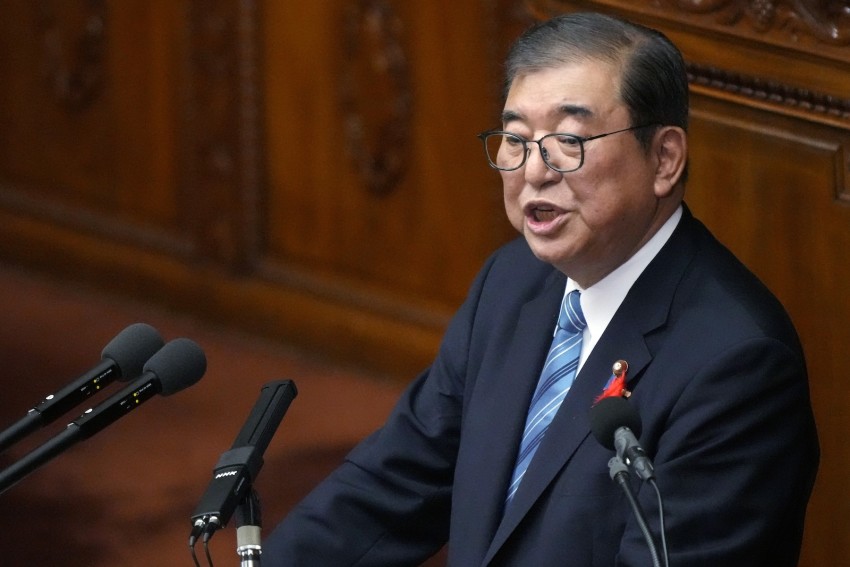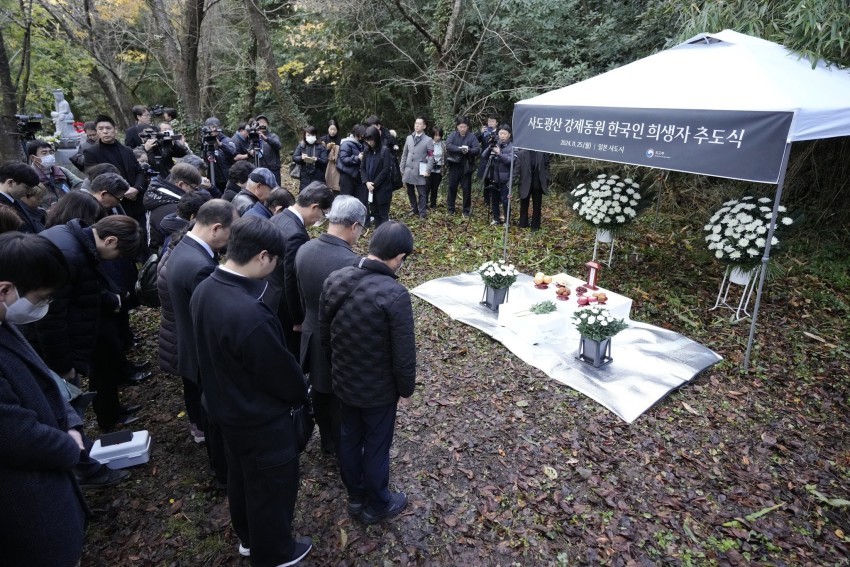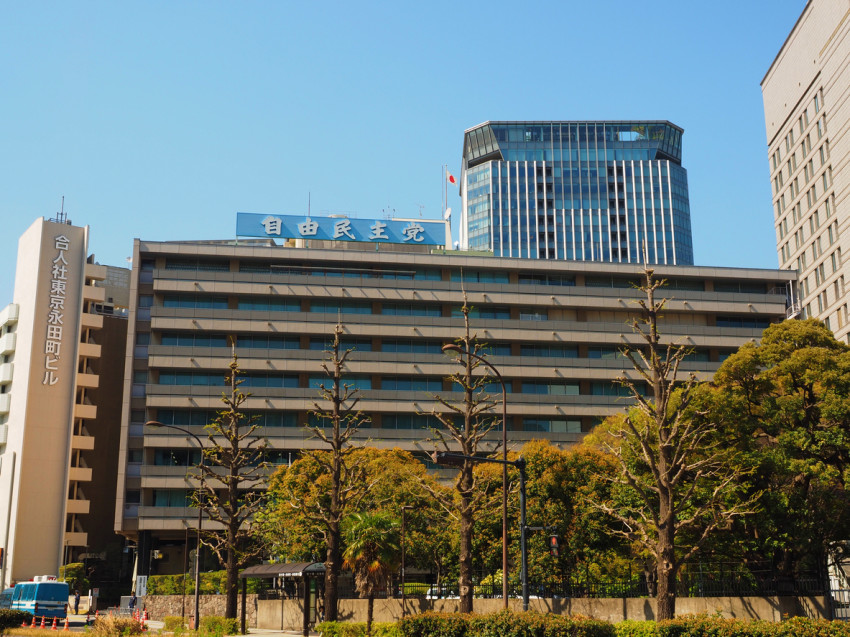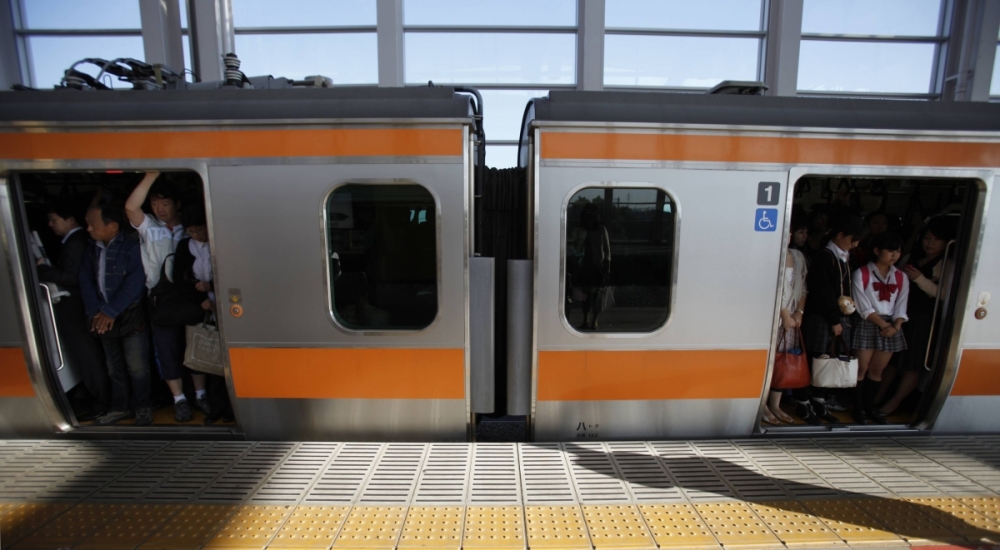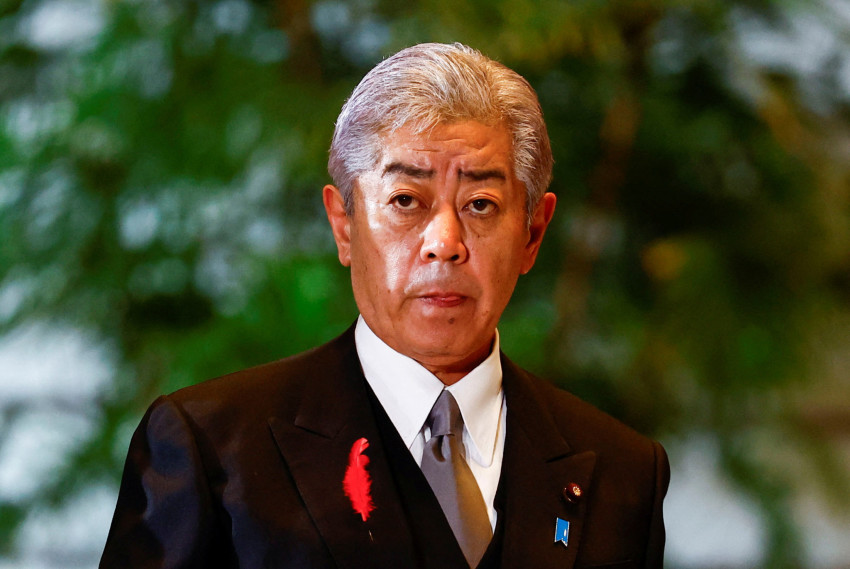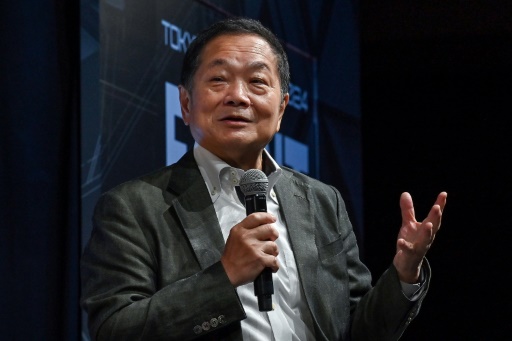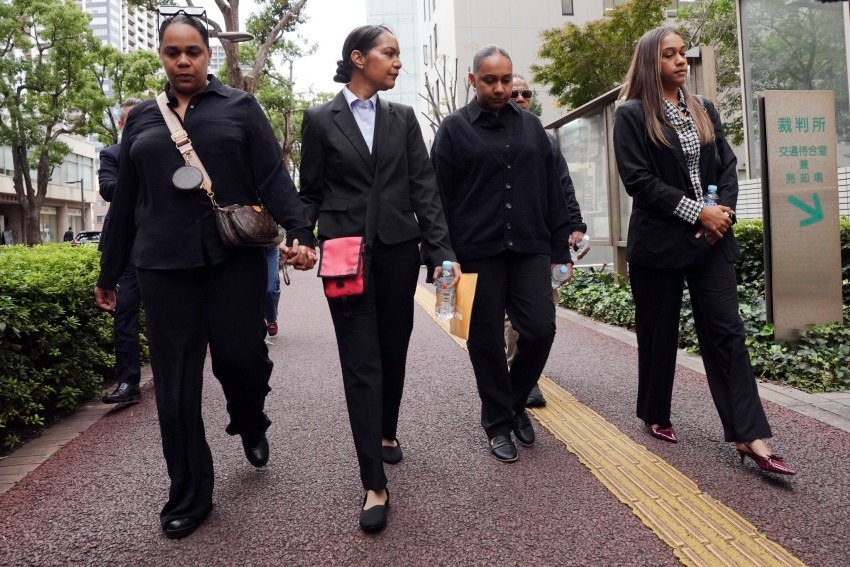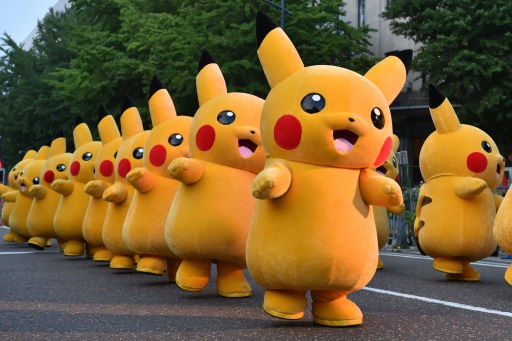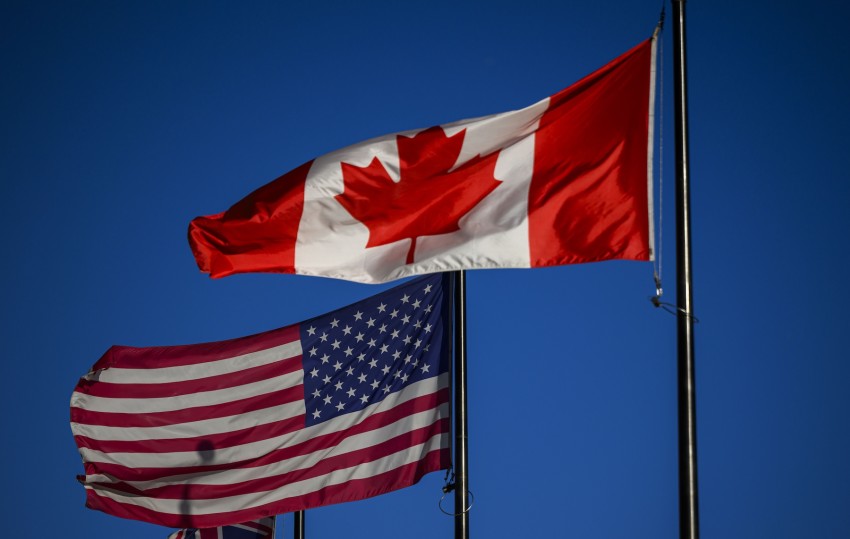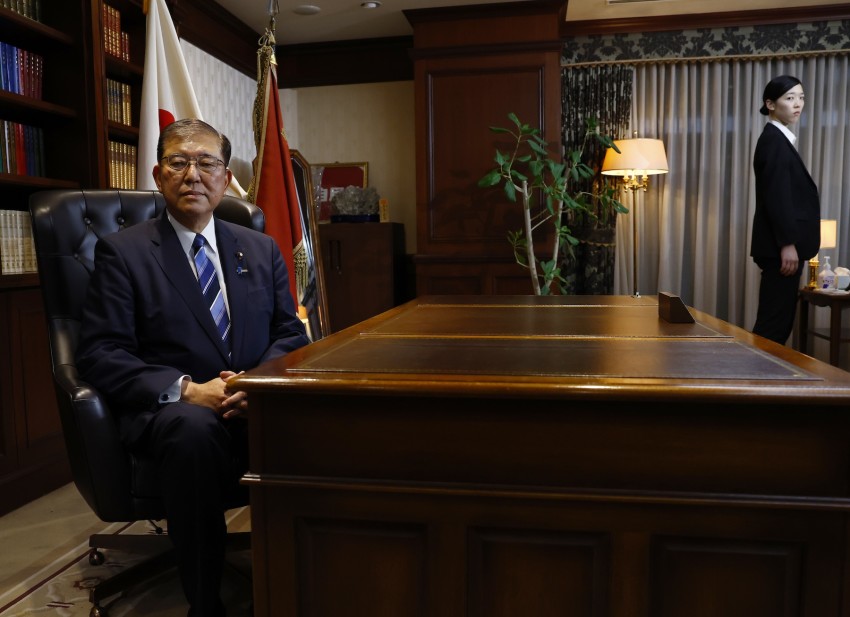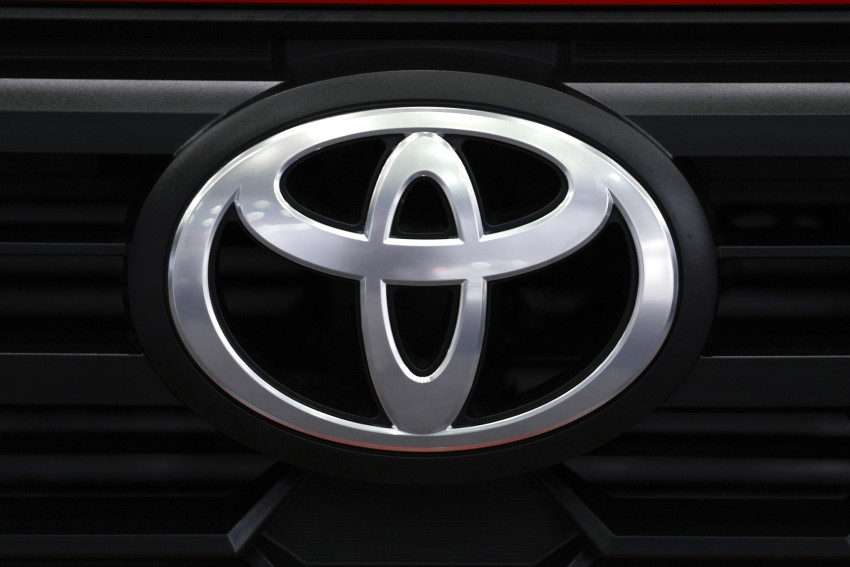Trump victory raises prospect of trade war impacting Japan, other U.S. allies
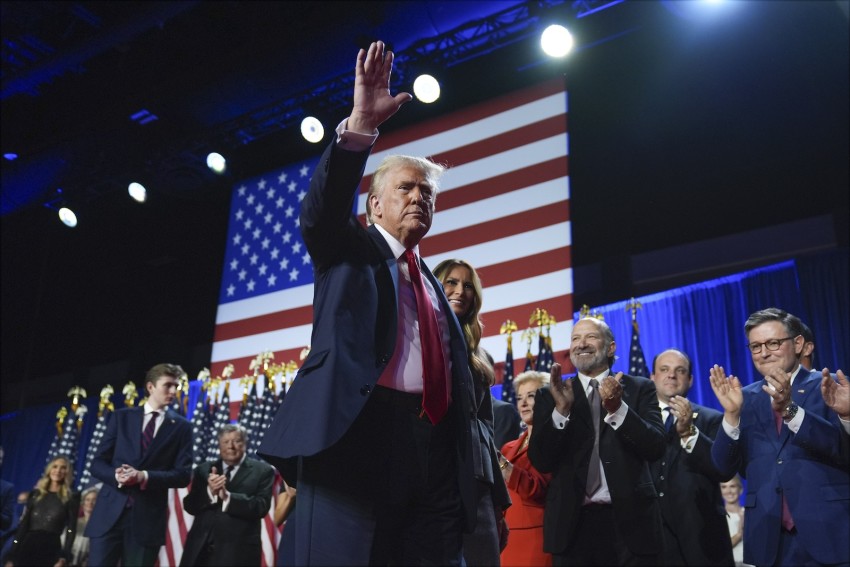
Donald Trump's win in the U.S. presidential election has raised the prospect of a tariff-fueled global trade war that may be damaging to Japan and many of Washington's closest allies, rather than dealing a blow to just his main target -- China.
Trump, who was in office between 2017 and 2021, and his Democratic opponent in Tuesday's election, Vice President Kamala Harris, differed significantly in their campaign proposals on issues ranging from abortion and immigration to wars in the Middle East and Ukraine.
But on the matter of trade policy, there were some similarities between Trump and Harris. First and foremost, they each acknowledged that higher tariffs can be an effective means of protecting domestic industries from foreign competition.
Their analogous approaches center on one issue -- how best to deal with China going forward.
Trump and Harris, as well as both the Republican and Democratic parties, have identified China as the greatest challenge to U.S. national interests.
Policymakers and foreign affairs pundits had said the United States would follow more or less the same path regardless of the election outcome in attempting to gain an edge over China in areas of competition including trade and technology.
Riley Walters, a Hudson Institute senior fellow specializing in international economics and national security, said the difference between Trump and Harris on the issue would be a matter of "speed."
"Under a new Trump administration, the rate at which these tariffs increase will be a lot quicker," Walters said.
Trump has promised to impose a 60 percent tariff on imports from China and a "universal" tariff of up to 20 percent on everything else entering the United States, which would make Japanese and other foreign products notably more expensive.
In a campaign speech, Trump singled out the word "tariff" as "the most beautiful word in the dictionary" that is superior to love and respect.
He had already displayed an affinity for tariffs during his first term, when he used the threat of such measures to seek concessions from foreign countries.
This time, however, his proposed tariffs are even larger, with mainstream economists warning they would not only slow the global economy and disrupt supply chains but also affect U.S. consumers, who are already frustrated by higher costs for everyday items.
In a clear reversal from decades of efforts by the United States and its partners to maximize the benefits of trade liberalization, Trump believes that tariffs, which are effectively import taxes, will also help shrink the federal deficit, in addition to creating more factory jobs.
Several top Japanese corporate executives who were visiting the United States before the election said on condition of anonymity that they would prefer to see a Harris administration.
"In general, we dislike unpredictable situations because we can't have enough time in advance to plan or prepare risk-hedging steps," one of them said.
For the first time in four years, the United States last year overtook China as the recipient of the most Japanese exports. Every major economic decision in Washington and Beijing, as well as the state of the world's two largest economies, has a direct impact on Japan.
At a time when inflation has fallen without high unemployment in many countries, with a so-called soft landing on the horizon, Gary Hufbauer, a nonresident senior fellow at the Peterson Institute of International Economics, said Trump's tariffs, even if he goes ahead with only some of those aimed at China, would be "very destructive to the world economy."
Hufbauer expects Trump will be true to his word and unleash higher tariffs against China soon after his inauguration as president in January, adding that the move will also crater U.S. exports to China, as Beijing is almost certain to retaliate with similar measures.
He predicted that Trump will hold off on the use of broad-based tariffs and first prioritize those targeting China.
For scores of countries, national security has risen to the top of the list of concerns. Global supply chains have become increasingly interconnected, as the COVID-19 pandemic has shown, and emerging technologies such as artificial intelligence will be foundational to the future of economic and military might.
The administration of President Joe Biden largely retained the tariffs Trump deployed while in office and raised those on Chinese goods in sectors of strategic importance, such as semiconductors, solar cells and steel products.
On electric vehicles from China, it quadrupled tariffs to 100 percent, although they are rarely seen on roads in the United States.
Additionally, as part of efforts to make it harder for China to access critical technologies and use them for military applications, the Biden administration has tightened trade controls.
The two clear-cut distinctions between the Biden administration's policies and Trump's plans are the scope of those trade barriers and their degree of expectations for U.S. allies.
Unlike Trump, Harris signaled a broad continuation of the Biden administration's way of using "targeted" tariffs to counter what it sees as China's unfair trade practices while working together with allies to pressure the Asian power and tackle mutual challenges.
Walters of the Washington-based think tank, whose fields of expertise include East Asian affairs, said the difficulty with a Trump administration is that "no one country is safe," given that he hates trade deficits.
The shortfall in U.S. trade with Japan in 2023 stood at $71.2 billion, the sixth biggest after China, the European Union, Mexico, Vietnam and Germany, according to official data.
However, Walters added there may be opportunities for global companies such as those of Japan to benefit from new U.S. tariffs against China as producers need to find suppliers outside of Asia's biggest economy.
While it is still anyone's guess whether Trump's tariff threats will fully come to fruition, he said, "There could be trade-offs that both harm and help Japanese companies."
"He might not be able to address all of these issues within four years, and the order in which he does anything matters too, adding to the uncertainty," the expert said.

